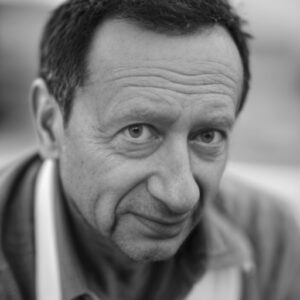
Robert Bloch was born April 5, 1917, in Chicago, Illinois—a city already steeped in shadows and burgeoning myth even then. His arrival wasn’t heralded by fanfare, but rather the quiet hum of an industrial age, a backdrop that would subtly, yet profoundly, shape the worlds he later conjured. He left us on September 23, 1994, leaving behind a legacy not merely of horror, but of psychological exploration and a relentless questioning of what it means to be human.
Bloch wasn’t a recluse in the tower, though his imagination certainly thrived in solitude. A prodigious talent from youth, he began publishing in his teens, selling stories to pulp magazines under various pseudonyms—a necessity born from youthful ambition and the demands of the pulp market. This early immersion in the genre was formative. He absorbed the conventions, then systematically began dismantling them, not with bombast, but with a surgeon’s precision.
His influence on the horror landscape is difficult to overstate. While contemporaries like H. P. Lovecraft focused on cosmic dread and ancient entities, Bloch turned his gaze inward. Where Lovecraft evoked fear through the unknowable vastness outside humanity, Bloch excavated the terrors within. He wasn’t interested in monsters lurking in forgotten dimensions; he was fascinated by the monsters we carry within ourselves—our anxieties, our repressions, our capacity for cruelty.
This distinction is perhaps best illustrated when considering his most famous creation, Norman Bates, brought chillingly to life in Alfred Hitchcock’s Psycho. The novel, published in 1959, wasn’t simply a shocker; it was a dissection of the fractured psyche, a study in inherited trauma and the insidious nature of delusion. It irrevocably altered public perception of horror, moving it from gothic castles and supernatural threats to the unsettling normalcy of everyday life.
Bloch’s style is often described as “conversational,” deceptively simple prose that lulls the reader into a false sense of security before revealing the darkness beneath. He favored character-driven narratives, building tension through psychological realism rather than graphic spectacle. He wasn’t concerned with ornate descriptions or elaborate world-building in the manner of J. R. R. Tolkien; his worlds were often deliberately mundane, making the intrusions of horror all the more jarring. Think of it as a slow burn, a creeping unease that festers long after you’ve turned the final page.
Consider This Crowded Earth, published in 1958. Though not his best-known work, it offers a glimpse into Bloch’s broader thematic range. It isn’t merely a post-apocalyptic tale; it’s an examination of psychological strain under extreme conditions, of individuality eroded by overpopulation and state control. Even in a dystopian setting, Bloch’s signature remains: the horror lies not in spectacle, but in the slow unraveling of the human psyche. The story reflects his persistent concern with how external pressures distort internal realities—a theme as relevant today as ever.
Bloch’s impact extended beyond his own work. He mentored aspiring authors, championed genre fiction, and consistently challenged the boundaries of what horror could be. Authors like Stephen King acknowledge him as a pivotal influence, recognizing in Bloch’s work a kindred spirit—a willingness to confront uncomfortable truths and explore the darker corners of the human experience.
Robert Bloch didn’t simply write stories; he crafted mirrors reflecting our own anxieties back at us, distorted and magnified. He understood that true horror isn’t found in what jumps out from the shadows, but in what lurks within the heart—a truth that continues to resonate with readers decades after his passing, securing his legacy as a master of the psychological macabre.